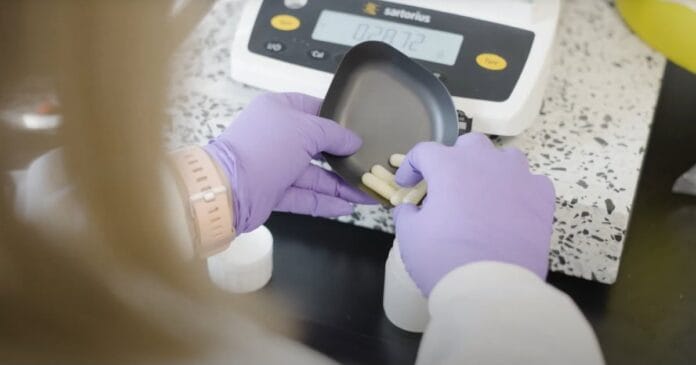A synthetic cannabinoid trial is reportedly benefiting cancer patients experiencing anorexia and weight loss.
Despite eating normally, patients with cachexia continue to lose weight; both muscle mass and fat. Cancer anorexia cachexia syndrome affects 50% to 80% of patients with advanced cancer and is associated with an annual mortality rate of approximately 80% according to this study.
Cannabis has long been associated with boosting appetite (aka “the munchies“); specifically the cannabinoid THC that is also responsible for marijuana’s “high”. It’s thought to trigger production of the hormone acyl-ghrelin (AG) secreted primarily in the lining of the stomach. AG is known as the “hunger hormone”.
Artelo Biosciences, Inc., a clinical-stage pharmaceutical company, has been working on a dual cannabinoid agonist called ART27.13; a novel benzimidazole derivative the company is developing as a once-daily, orally administered formulation that selectively targets peripheral CB1 and CB2 receptors.
Interim results from its Phase 2 Cancer Appetite Recovery Study (CAReS) trial with ART27.13 have been encouraging:
- Patients taking a 1300 microgram dose achieved a +6.38% average weight gain after 12 weeks, compared to a -5.42% average loss on placebo.
- Patients treated with ART27.13 experienced a +4.23% increase in lean body mass, while placebo patients lost -3.15%.
According to Artelo, patients administered ART27.13 also showed improvements in activity scores and in moderate and vigorous activity. The treatment was well tolerated, despite patients receiving up to twice the maximum dose delivered in the Phase 1 stage of CAReS,
It should be noted this is a small study, involving 18 evaluable patients. However, initially developed by another firm, AstraZeneca, ART27.13 has been in seven clinical studies involving more than 280 participants.
“ART27.13 is uniquely positioned as the most clinically advanced small-molecule, orally administered once-daily treatment in development for cancer anorexia,” said the firm.
If ultimately successful, ART27.13 could prove to provide the benefits of THC without other effects, including potential intoxication. Currently, there is no US FDA approved treatment for cancer anorexia cachexia syndrome.
Professor Saoirse O’Sullivan, Vice President of Translational Sciences at Artelo Biosciences, presented the findings at the 8th Annual Cannabinoid & Endocannabinoid Drug Development Summit that took place in Boston, Massachusetts this week.


